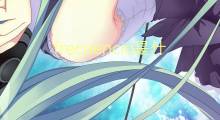timpani是什么意思 timpani的读音、翻译、用法
- 2024-03-29 11:40:02
- 247

1. 定义:timpani是一种大型打击乐器,通常由几个大鼓组成。它的声音非常深沉有力,常被用于管弦乐队和其它大型音乐演出中。
2. 历史:timpani最早出现在欧洲文艺复兴时期,最初被称为kettledrums。在17世纪,timpani逐渐取代了其它类型的鼓,成为管弦乐队和交响乐中不可或缺的一部分。
3. 使用:timpani常用于节奏强烈、情感激烈的音乐中,如交响乐的部分、舞蹈音乐和民间音乐演出等。它能够打出各种不同的音高和音色,使得演奏者能够在音乐中发挥出自己的创造力。
例句:
1. The timpani player hit his drum with great force, creating a loud and powerful sound that ecd throughout the concert hall.
(timpani演奏者用巨大的力量敲击着他的鼓,创造出一个声音巨大、有力的声音,在音乐厅里回荡。)
2. The timpani are an essential part of any symphony orchestra, adding depth and power to the music.
(timpani是任何交响乐队的必备部分,为音乐增添了深度和力量。)
3. During the climax of the song, the timpani player began to pound his drums with incredible force, sending shockwaves through the audience.
(在歌曲部分,timpani演奏者开始用不可思议的力量敲击鼓,向观众传送冲击波。)
4. The timpani player adjusted the tension on his drums, carefully tuning them to the right pitch for the upcoming performance.
(timpani演奏者调整着他的鼓的张力,仔细地调音,为即将到来的演出做准备。)
5. The composer wrote a piece of music that featured the timpani prominently, showcasing its unique sound and versatility.
(作曲家写了一首突出timpani的音乐作品,展示了它独特的声音和多功能性。)
未经允许不得转载
相关推荐
-

tremens是什么意思 tremens的读音、翻译、用法
'tremens'是拉丁语中的形容词,意为“颤抖的”,通常用来形容因戒断或其他原因导致的症状。该单词在英语中通常作为名词使用,即“delirium tremens”,缩写为“DTs”。发音为/dɪˌlɪriəm ˈtrēmənz/。
2023-09-26265 9 -

lgl是什么意思 lgl的读音、翻译、用法
词义:lgl并不是一个常见的词汇,也没有明确的词义。可能是某个企业、组织或人名的缩写。
2023-11-12346 3 -

kick it是什么意思 kick it的读音、翻译、用法
含义:在口语中,“kick it”通常表示“放松、休息、闲逛”,也可以表示“开始(做某事)”。
2023-06-23348 6 -

frecuencia是什么意思 frecuencia的读音、翻译、用法
Frecuencia是一个西班牙语单词,翻译成英语为frequency。它可以指物理学上的频率,也可以指某一事件发生的次数。在英语中,frecuencia的缩写通常为freq。以下是从三个方面对frecuencia或freq进行的详细解释:
2023-07-19298 1 -

organon是什么意思 organon的读音、翻译、用法
词的意思:organon指的是一种工具或仪器,用于进行科学或哲学研究,特别是那些需要系统化和逻辑推理的研究。
2023-10-07161 7 -

tiniest是什么意思 tiniest的读音、翻译、用法
词义:tiniest是形容词,用来形容大小、数量、程度等极小、微小、细微的事物或物体。
2024-03-0156 7 -

calderas是什么意思 calderas的读音、翻译、用法
Calderas是一个名词,指的是大型火山口,是由于火山活动造成的地表凹陷。由于地表下的岩浆腾腾而动,经常会爆发,喷出大量的岩浆和烟雾。Calderas可以是圆形、椭圆形或不规则形状,直径可以延伸到10公里或更大。
2023-08-29214 5 -

salkin是什么意思 salkin的读音、翻译、用法
含义:'salkin'是一个缩写词,它可以指代"SAs, LAs, and KINs",也就是学生助理、研究生助教和实验室技术员。这些人员通常在大学或研究机构的教学和研究方面提供支持和协助。
2023-06-23190 6
- 3457人参与,13条评论
发表评论